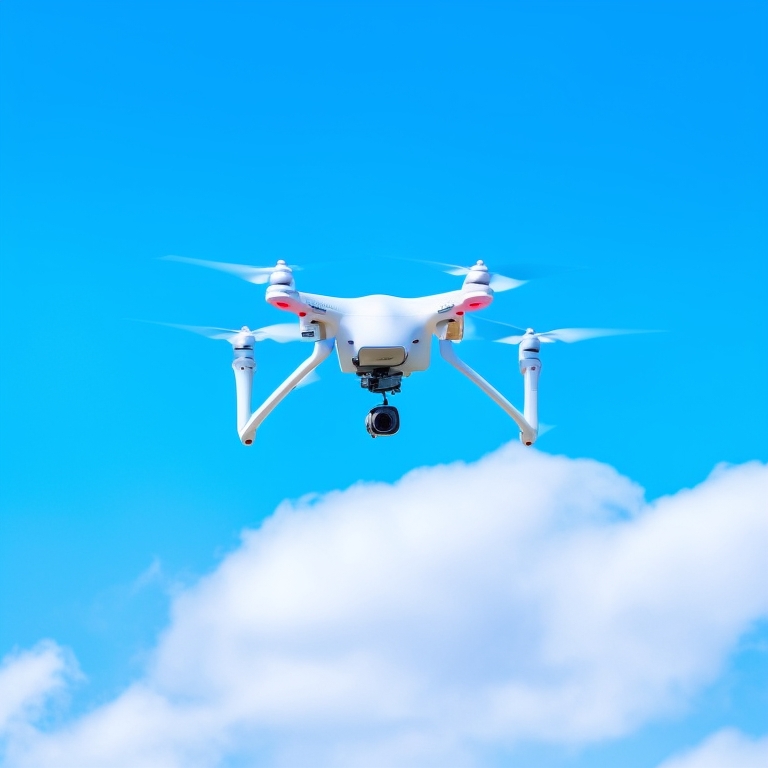Comprehensive Guide to Drone Permits in 2024
Introduction
The utilization of drones has soared across various industries, revolutionizing how businesses and hobbyists capture images, conduct surveys, and deliver services. However, navigating the regulatory landscape for drone operation can be challenging. Understanding drone permits is crucial for anyone looking to operate a drone legally and safely. This comprehensive guide delves into the types of drone permits, the application process, regulations, and best practices to help you secure your permit in 2024 without a hitch.

What Are Drone Permits?
A drone permit is an official authorization that allows individuals and organizations to operate drones under specific conditions. Issued by regulatory bodies, these permits ensure that drone operations comply with safety standards and legal requirements. Whether flying for recreational or commercial purposes, obtaining a drone permit is essential for lawful drone use.
These permits outline where and how a drone can be flown, helping to mitigate risks associated with drone operations. Different permits may be required based on the drone’s intended use, making it important to understand the specifics that apply to your situation.
Why Drone Permits Are Necessary
Drone permits are necessary to maintain airspace safety, protect public privacy, and ensure that drone operations do not interfere with manned aircraft. The Federal Aviation Administration (FAA) and other regulatory bodies mandate drone permits to establish operational guidelines and safety standards.
Permits also provide a framework for accountability, ensuring that drone operators adhere to ethical and legal standards. By securing a drone permit, operators demonstrate their commitment to safe and responsible drone use, thereby enhancing public confidence in drone technology.
Different Types of Drone Permits
Recreational Drone Permits
Recreational drone permits cater to hobbyists who fly drones for personal enjoyment. These permits typically come with fewer restrictions but still require operators to follow basic safety guidelines and respect no-fly zones.
Commercial Drone Permits
Commercial drone permits are essential for businesses using drones for activities like aerial photography, construction, and delivery services. These permits require operators to meet stricter criteria, including specific pilot certifications and operational parameters.
Special Use Permits
Special Use Permits are designed for unique or extraordinary drone activities, such as flying in restricted areas, night operations, or large-scale events. Obtaining these permits involves detailed applications and thorough reviews to ensure safety and compliance.

The Permit Application Process
Step-by-Step Guide
- Determine the type of permit required based on your drone’s intended use.
- Complete the necessary training and certification, such as the FAA’s Part 107 certification for commercial use.
- Submit an online application through the relevant regulatory body’s portal.
- Provide detailed flight plans and operational intentions.
- Wait for the review and approval process, which can vary in length.
Required Documentation
Applicants must provide:
– Identity verification documents.
– Proof of training and certification (e.g., Part 107 certificate).
– Detailed flight plans and purpose of drone use.
– Insurance documentation if required.
Application Fees
Application fees vary depending on the type of permit and the regulatory body. Commercial permits generally involve higher fees due to the comprehensive evaluation process.

Federal, State, and Local Regulations
Drone regulations can differ significantly based on jurisdiction. It’s crucial to understand and comply with federal, state, and local rules to avoid legal complications.
Federal Regulations (FAA)
The FAA regulates drone operations in the United States, setting guidelines that all operators must follow. This includes registration requirements, pilot certification, and operational restrictions (e.g., maximum altitude, no-fly zones).
State Regulations
Each state may impose additional regulations, such as specific no-fly zones, privacy laws, and restrictions on drone use in certain areas. It’s essential to review state-specific laws before operating a drone.
Local Government Rules
Local governments can also enforce ordinances that affect drone usage, such as bans on drones in public parks or residential zones. Checking with local authorities ensures compliance with all applicable rules.
Common Pitfalls in Obtaining Permits
While obtaining a drone permit is crucial, several common pitfalls can hinder the process. One major issue is submitting incomplete applications, which can lead to delays or outright denials. Another common problem is a failure to provide the required documentation or misunderstanding the type of permit needed. Additionally, an incomplete knowledge of regulations at various levels (federal, state, and local) can result in application denials.
How to Overcome Permit Challenges
Navigating the complexities of drone permit applications can be daunting. However, being thorough in reviewing guidelines and ensuring all documentation is complete can mitigate many challenges. Seeking expert advice or consulting with regulatory bodies directly can also streamline the application process. Staying informed about updates to regulations and maintaining clear communication with the authorities can go a long way in securing a permit smoothly.
Tips for a Successful Permit Application
To increase your chances of a successful permit application, here are some useful tips:
- Submit clear and concise applications.
- Adhere to all training and certification requirements.
- Provide detailed and accurate information about your drone operations.
- Ensure all required documentation is complete and well-organized.
- Regularly review regulatory updates and integrate the latest guidelines into your application.
Maintaining Compliance and Permit Renewal
Renewal Process
Drone permits often need renewal, which involves resubmitting applications and updated documents. Staying aware of expiration dates and renewal requirements is essential. Typically, renewals are simpler than initial applications but require careful attention to detail to ensure all information is up-to-date.
Updating Information
If operational details change, such as new drone models or additional usage areas, it’s critical to update your permit accordingly. Keeping your permit information current ensures ongoing compliance and helps avoid potential penalties.
Staying Informed on Regulatory Changes
Drones are a rapidly evolving technology, and regulations can change frequently. Regularly checking for updates from regulatory bodies ensures you remain compliant. Subscribing to newsletters or joining industry forums can help you stay informed about the latest developments in drone regulations.
Conclusion
Securing a drone permit is a multi-step process that requires diligent preparation and a thorough understanding of various regulations. Whether flying for fun or business, adhering to the guidelines ensures safe and lawful drone operations. By following this comprehensive guide, you can navigate the complexities of obtaining and maintaining drone permits in 2024 effortlessly. Staying informed and prepared will not only ensure compliance but also enhance the safety and reliability of your drone operations.
Frequently Asked Questions
What are the consequences of flying a drone without a permit?
Flying a drone without a permit can result in fines, legal actions, or drone confiscation. Compliance with regulations is vital to avoid these penalties.
How long does it take to get a drone permit?
The time frame varies by permit type and regulatory body, but it typically ranges from a few weeks to several months.
Can drone permits be transferred between users?
No, drone permits are generally non-transferable and must be obtained individually by each operator.

